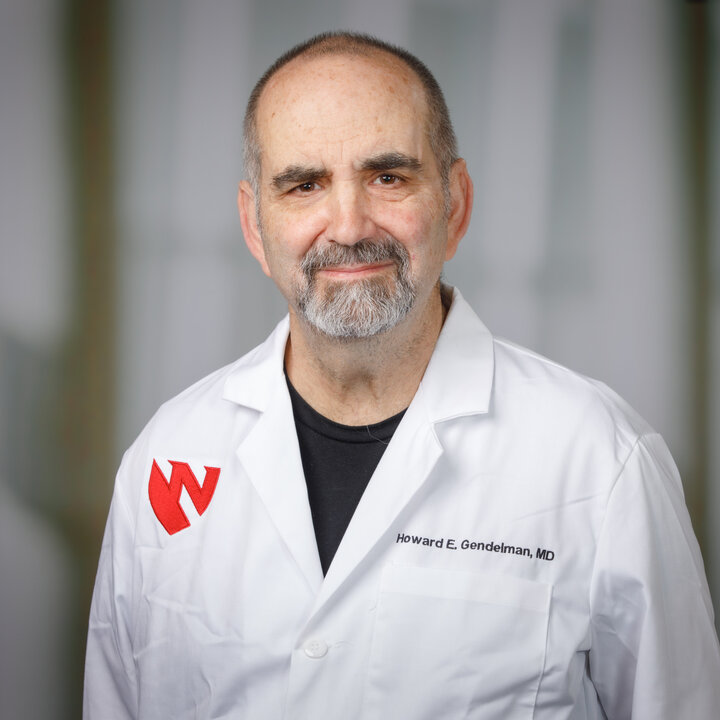
Howard E. Gendelman
Chair and Professor Department of Pharmacology and Experimental Neuroscience & Margaret R. Larson Professor of Internal Medicine and Infectious Diseases Chair University of Nebraska-Lincoln
Contact
- Website
-
lab website
The current and longer-range goals of the laboratory are to develop antiretroviral, immune transformative, gene editing and theranostic agents to improve the diagnosis, treatment and “cure” options for viral and neurodegenerative diseases.
The laboratory initiative is a consortium of research collaborators divided into specific programs, each co-led by established investigators with specific expertise in immunology, molecular biology, infectious disease, proteomics, physiology, chemistry and pathogenesis. These provide the student and research fellow an interdisciplinary research experience.
First, studies revolving around the development of cell-based long-acting drug delivery. Nanotoxicology studies involve the studies of the regulation of leukocyte entry into peripheral and neural tissues with a focus on restoring nervous system homeostasis and glial immunity. This is seen during neurodegenerative diseases and include studies of Parkinson’s and Alzheimer’s diseases. Those agents that are being developed include, but are not limited to, antiviral, neuroprotective, and anti-inflammatory drugs.
Second, drug testing of both neuroprotective and neuroregenerative medicines used in combination with diagnostics are being developed in disease-relevant animal models for disease. This program is part of national grant efforts that involve scientists at the University of Nebraska Medical Center and Moderna, Calibr, Exavir and Partner Biotechnology Companies. The focus is to perform translational and clinical research.
Third, transcriptomic, proteomic and metabolomic approaches for biomarker discovery are linked to studies of cell-cell interactions for disease. This is part of a broader initiative of how transformative medicines can suppress, eliminate and or transform viral replication and brain immune dysregulation.
Fourth, neuroimmunologic approaches that induce protective immunity are being pursued in animal models of neurodegenerative diseases. The laboratory has developed a unique immunoregulatory approach that uses T cell sources for brain repair to combat neurodegeneration.
Education
1979
MD - Pennsylvania State University